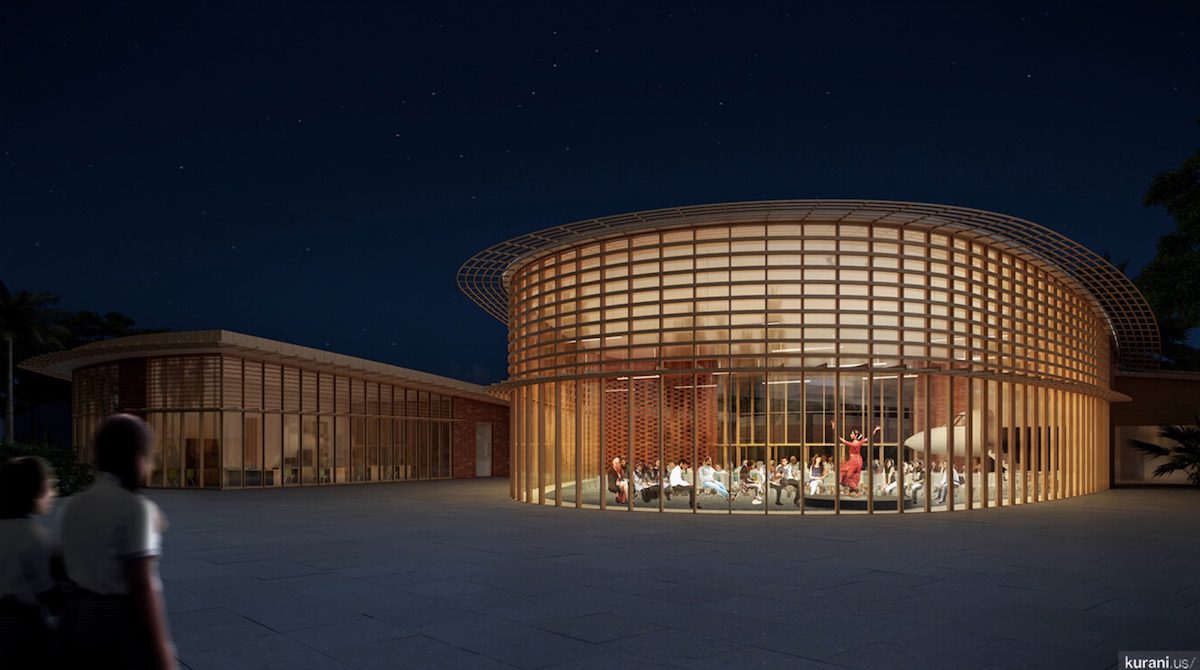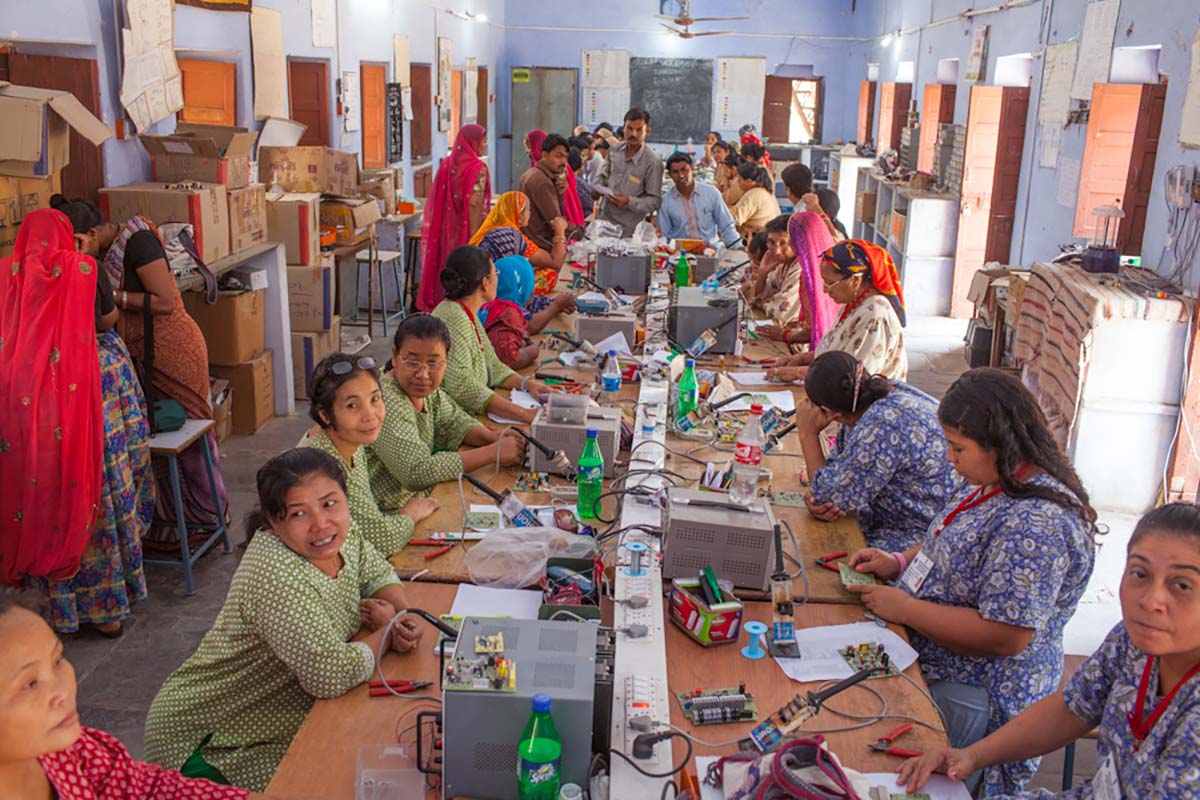In 2020, the Reverbend School is going to open it’s doors in India. A school adapted to the todays students needs. With focus on teaching soft skills, as hard content can be so easily found on internet nowadays. The founders confirm that by feeling happy, students learn better and more. So they put all their focus on beautiful surroundings and easy facilities to meet and exchange with friends. The children are going to live in the school during the week, and have free access to all the learning centers, which are reaching from meditation to academic teachings. The founders are greatly aware that by offering the students a decent surrounding, by encourageing relationships, by fosusind on positivity, collaboration and joy, and by living a slower pace, the children are going to excell, without the pressure of exams, without the necessity to learn what they’ll never use in life. On the weekends, they go home to their families.
xxx
By Adele Peters: At a new school that will soon be built near Chennai, India, you might find a student in a tree-filled meditation room, an ideation lab, or a test kitchen. They won’t be in a traditional classroom. The school’s primary goal: teaching children how to be happy. Learning skills comes next. Preparing for standardized tests is not part of the curriculum.
“It’s our view that happiness–or emotional intelligence, or balance, or confidence, or self-esteem, or any other word for feeling good about ourselves and our place in the world–is the foundation on which great lives and great achievements are built,” says Riverbend School cofounder Vivek Reddy.
“It’s our view that happiness . . . is the foundation on which great lives and great achievements are built.” The founders come from an entrepreneurial background, not the world of education, and saw an opportunity to approach the idea of a school in a radically different way.
“If you think of typical schools, the priority is knowledge acquisition–cramming kids’ heads with information, then skills, and if you’re lucky, maybe your school cares about your personality and character and what type of person you are,” says architect Danish Kurani, whose team designed the school’s campus. “They said, you know what, we want to flip this model. We’re going to focus first and most on students’ character and personality. We want to cultivate happy kids, compassionate people, people that are going to go out into the world and do something good.”
The new campus for middle and high school students, which will be built in a rural area outside the metropolis of Chennai, surrounded by farmland and bordered by the ocean, is designed to support the goal of cultivating happiness. Kurani was inspired by a long-running Harvard study that has tracked people over the last 80 years, which found that strong relationships are key to a happy life. In other research, he found that the format of villages tends to foster strong relationships, so the layout of the campus mimics a village.
“The relevance of knowledge is very limited.” [Image: Kurani]Instead of a town square, there’s a central common space. Instead of businesses lining the square, there are academic buildings. In the next concentric ring, there’s recreation space, followed by housing, and fields where students can farm at the outer edges. The walkways are tight alleyways, similar to those that organically formed in old villages. Student dorms, where the students stay during the week, have similar central, town square-like areas on each floor.
The students will also be taught how to live a happier life using philosophy from resources like the Vedas, ancient Hindu texts. “I think from a Western context, you tend to believe that the environment controls your happiness,” says cofounder Kiran Reddy. “So you attempt to control your environment. In an Eastern philosophy, you tend to believe that you control happiness through your mind–in how you perceive things, so you can disconnect the environment from your happiness. Ideally, that’s what we want to teach the kids.”
Rather than following a standard curriculum, students will decide what they want to learn themselves, and pursue learning through experience. A day might start with a mango lassi and meditation or basketball, followed by a morning spent re-coding software for a classmate’s rocket launcher or reciting poems in a classical Indian literature seminar, lunch with friends, and an afternoon working on a new business in an on-campus incubator.
“Whatever knowledge is being taught in school today may not be knowledge that has to be taught five years down the line.” [Image: Kurani]The campus also includes “chat labs” for collaboration, labs for physical prototyping or digital creation, rooms that can be used as galleries or for presentations, recording, music, art, and dance studios, and a retail storefront where students can run businesses.
Faculty will act as coaches and mentors for students, helping them learn how to think independently. The school will focus on teaching students how to learn about a subject or skill that interests them–and exposing them to a broad range of subjects–rather than imparting a particular set of information.
“It’s not a school for everyone.” [Image: Kurani]“The relevance of knowledge is very limited,” says Reddy. “Whatever knowledge is being taught in school today may not be knowledge that has to be taught five years down the line. Or it might not be relevant to a large proportion of the kids. So why would we even teach any of that stuff?”
The approach poses challenges–Reddy says that the team is still working to resolve the “disconnect” between their approach and Indian educational regulations. He also acknowledges that many parents won’t be comfortable with the approach. “It’s not a school for everyone,” he says. But some will agree with the underlying philosophy: People pursue college and successful careers because, ultimately, they want to be happy, and it might make sense to focus more directly on that end goal.
The school is scheduled to begin construction this year and to be completed by 2020. The campus will also include an institute with researchers who can study the effectiveness of the school’s techniques. While it’s hard to imagine this being replicated everywhere–the resources provided, and the small student-teacher ratio, make it expensive–the team wants to share any successes for other schools to consider incorporating. “I can’t solve the schooling problem myself,” says Reddy. “I can only create a pilot or experiment and hope that other people pick up the learnings of this approach.”
Source: Fast Company



